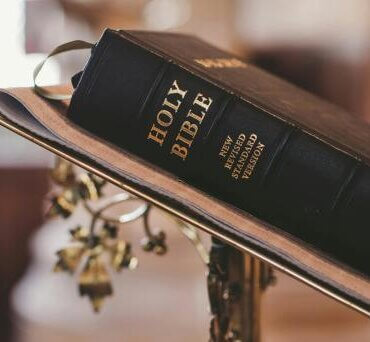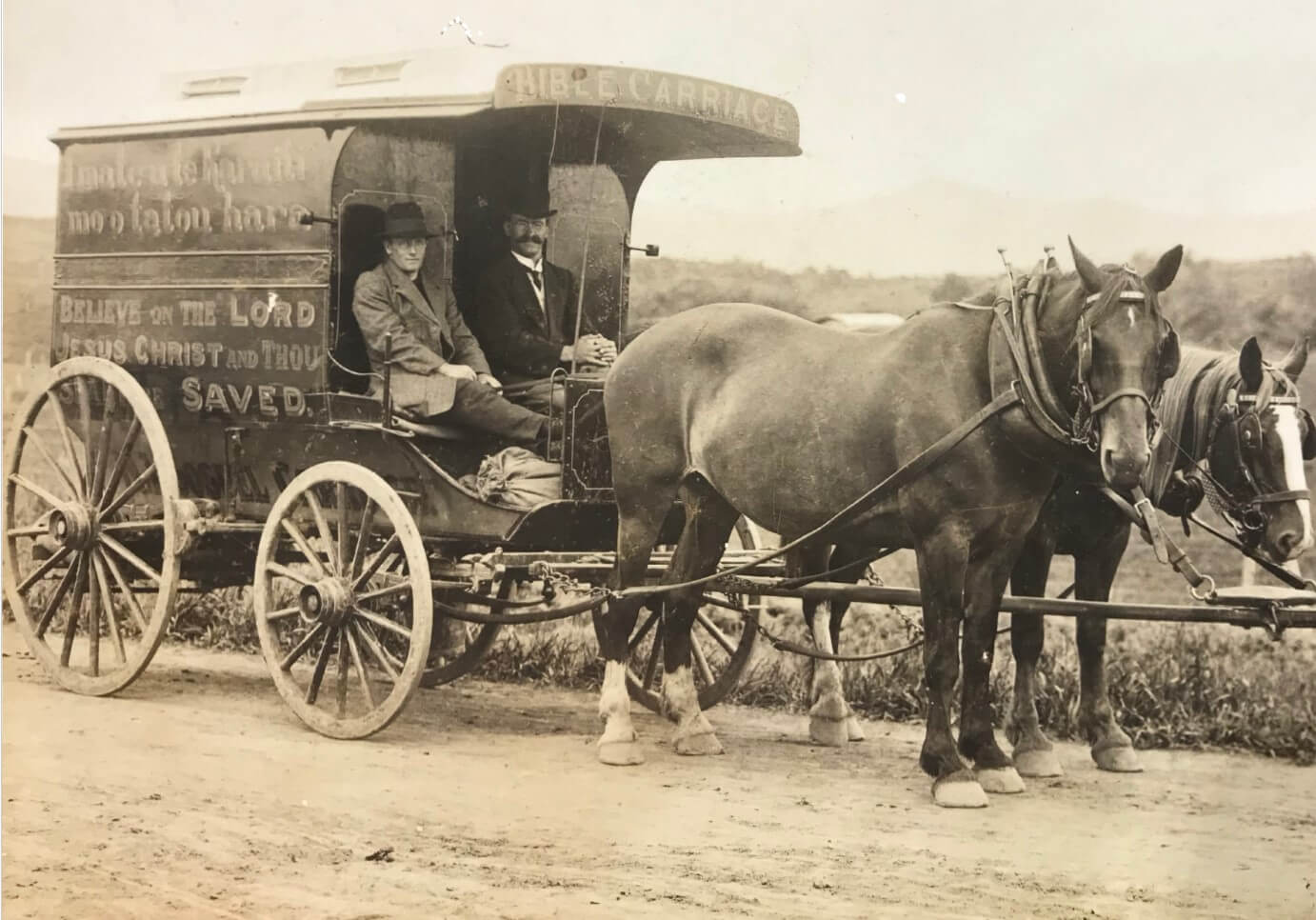
The Bible
As an only child, my dad hadn’t even reached the age of two when his father was killed in a workplace accident on a construction site.

Grandpa Hugh on the Bible Carriage. See: Picture this
My knowledge of this grandfather is a bit sketchy. From photos, bits of information and stories passed on, this handsome man with a bushy moustache was a loving young husband and father, an honourable man living out a deep faith, and a highly skilled builder.
In a little leather wallet, we have the red tram ticket he purchased to travel to the worksite where he died later that day.
This sad story of loss might not have unfolded in today’s workplace under current safety standards. In our work environments, safety is a big deal regulated by strictly enforced requirements. Modern policies and practices aimed at reducing risk and promoting safety have no doubt helped to prevent accidents and the tragedy of lost lives.
Negligence with workplace and industry protocols attract hefty penalties if companies are found remiss. The risk of prosecution and fines provides huge incentive for companies to ensure safety prevails and to avoid punishment.
Thousands of years ago in ancient Israel a very different set of provisions was in place for the ‘safety’ and protection of anyone who accidentally harmed someone else. I’ve visited the remains of “cities of refuge” which were designated as safe havens where people could flee, having accidentally killed another person… that is, caused another’s death in unpremeditated and ‘non-hateful’ circumstances. In such cases the likelihood was high for the victim’s family to claim it was their right to exact their own retribution on ones who were inadvertently responsible for causing a life to be lost.
The Bible describes these cities of refuge as safe places offering asylum, providing protection for an individual—a ‘manslayer’, who had accidentally caused death from being harmed or killed in retribution before a fair trial could be held. The six cities were a shelter where a person could find refuge. Cities of refuge played an important role in establishing justice and mercy in a setting where vengeful people would not forgive, despite knowing a death was accidental.
In the Bible, ’cities of refuge’ were an illustrative picture of a future reality, yet to be revealed. A city of refuge was a ‘picture’ of what Jesus, who was prophesied throughout the scriptures as the Messiah, would be like… he would be the ultimate safe and strong refuge anyone can run to for justice, mercy and forgiveness.
“The name of the Lord is a strong tower; the righteous run to it and are safe.” (Proverbs 18 :10)
Lastly, an important fact… if the death of Israel’s serving High Priest occurred while a person sought safety in a city of refuge, it bought them immediate and full exoneration. This additional ‘picture’ of Jesus, saviour of the world (and Great High Priest), relates to everyone. His death on the cross provided salvation and freedom for all who’ll receive it.
See: Picture this









